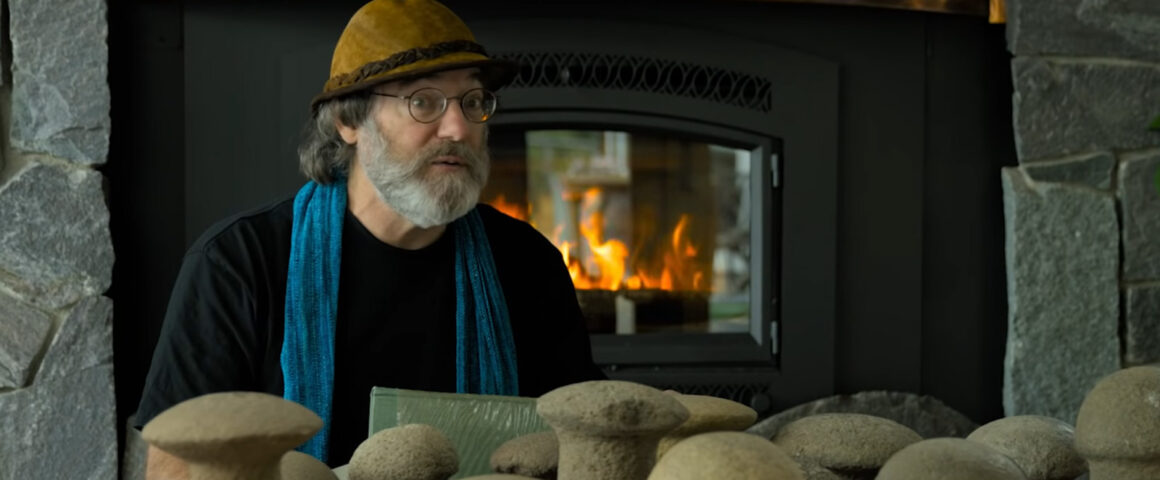Earth’s delicate balance is a theme that pervades the modern ecology movement, and the potential disruption of this balance is the prime factor behind the fear of global warming and overall climate change among professional biologists, amateur naturalists, and concerned citizens. Fantastic Fungi, an 80-minute documentary, attempts to contribute to the public discourse by presenting the importance of fungi in maintaining a healthy ecosystem. Via the use of time-lapse photography, computer generated graphics, animation, and macro photography by Louie Schwartzberg, the innovative cinematographer, who, among many accomplishments, has helped create and design IMAX films, and a solid script by Emmy-award nominated writer Mark Monroe (“Icarus”), the production values of the film make it riveting for the eye and ear.
Complementing these attention-getting elements is a narrative that includes interviews with a variety of scientists, which include cancer researchers, psychotherapists, microbiologists, and nutritionists. Among these experts, the film has chosen to focus most on the life and work of Paul Stamets, an ex-logger and now respected mycologist who seems to be part scientist, part seer, and part consciousness explorer. His presence is essential to the film, but explaining who he is and what he does can’t do service to appreciating his vision. You truly gotta see it to believe it! Nevertheless, everyone that is interviewed for the film rightly champions the mighty fungi according to his or her interest in them. Their research and enthusiasm help us appreciate the important role of fungi in maintaining the integrity of planet Earth. These interviews are complemented by “real life” footage of trips to old growth forests, and glimpses into mycology labs.
But then the documentary goes farther — into the realms of culture, evolution, and society. It shows the profound breadth (not an oxymoron) of fungi’s influence on human activity including their use in pharmaceuticals, food, medicine, and psychology. For example, the lion’s mane species of mushroom has been used to stimulate nerve regrowth. This property could have tremendous medicinal potential if researchers could harness it, including a treatment for Alzheimer’s and the possibility of speeding up healing for people that have experienced nerve damage and even cancer.
As impressive as the uses of fungi may be, some of the “out there” theories on the effects of mushrooms on human evolution are even farther out. For example, one scientist advances the view that when primitive hominoids hunted animals, they’d pause to eat whatever was readily available, which often were psychedelic varieties of mushroom. Over hundreds of generations, the theory goes, mushrooms played a role in the development of the cerebral cortex and eventually helped make us “smarter.” You can hear an anti-evolutionist object: “You mean a bunch of mushroom-eating monkeys made us smart?” Maybe. However, just as impressive is the very real use of psilocybin in religious rituals by indigenous peoples, and how this discovery has led to its use in modern psychology to heal trauma and reduce anxiety. The latter includes a glance at therapies being conducted at various medical centers to use the “magic mushroom” to heal mind and body.
Despite the impressive talent that participated in Fantastic Fungi (Academy Award winner Brie Larson, “Room,” narrates), the producers may have ignored the naïve viewer when creating this compilation. The film tries to cover so much territory — literally and figuratively — that the experience and sheer amount of information contained in the documentary can be overwhelming. Just as you begin to feel comfortable with one segment, you are hit with an entirely new angle. The result is that sometimes the fungi forest is hard to discern because there are so many trees.
There is a partial remedy for this information overload, though. A companion book to the film is available which can be studied more leisurely. It’s doubtful that the typical viewer will retain much of the science from one viewing of the film, but if it whets the appetite, it is sure to accomplish an important service to our understanding of this neglected but essential biological realm. The film could have had a better title; although Fantastic Fungi is appropriate, it has a biology class connotation that may inaccurately communicate that the documentary is an educational film for school kids. But if you can get past the title and accept the fact you won’t remember a lot of detail (of course, you could watch the film a second time), you’re likely to add a new dimension to your understanding of the infrastructure of life on Earth, and our lives on Earth.



